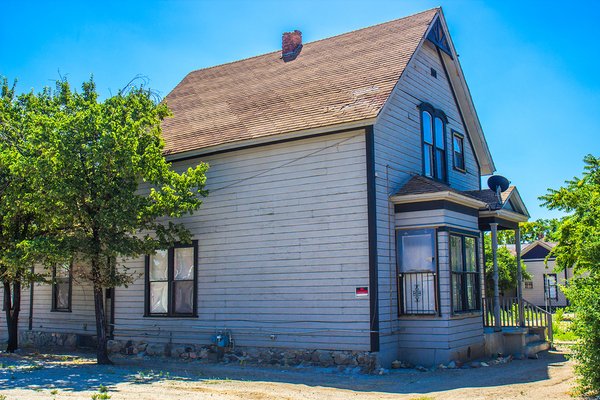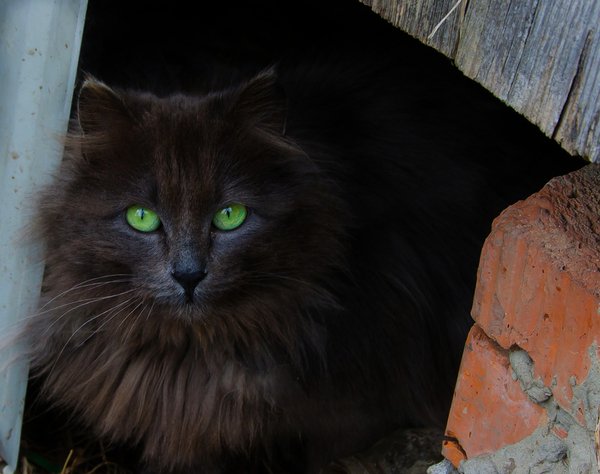
How to Inspect a Vacant or Abandoned Home

Not every house for sale has a homeowner polishing faucets, painting walls and baking cookies inside. Vacant or abandoned homes also find their way to the market. The owner might move early if they find the home of their dreams. Maybe the property was a rental and the investor wants to sell. Sometimes, foreclosures or a death leaves the property empty.
Vacant homes might pose no trouble for the home inspector at all. In some ways, they’re much easier to inspect. If there’s no furniture, moving boxes or household belongings in the way, you could be in and out in a flash.
But sometimes, an empty house is an exercise in frustration. Here’s what you need to know before you arrive for the job.
Are the Utility Services Active?
This is a fairly common problem, especially if the property owner is in another state. You can’t inspect the electrical system if the power is shut off. Without power, you can’t test lights, outlets, appliances, smoke alarms or anything else electrical.
You also can’t test the heating and cooling system.
Touch base with the property owner or the listing agent before the inspection date arrives. Give them plenty of time to determine if utility service is on and to resolve that problem if it’s not.
If service isn’t on when you arrive, clearly note it on your inspection report and notify all interested parties from the listing agent to your home inspection customer. The last thing you need is a broken furnace and a disgruntled buyer when you had no ability to test the appliance.

Feral animals might live in vacant property; some were abandoned by their owners.
Have Rodents or Other Pests Taken up Residence?
Depending on how long the house has stood empty, it might not be empty at all. Critters and creatures find their way into vacant properties. Why wouldn’t they? It offers abundant shelter from the elements without the threat of traps, poison or grumpy people with brooms and spray cans. It’s practically a Wild Kingdom commune.
Nearly any kind of pest or animal can set up housekeeping inside a vacant house and all of them could harm you if you’re not cautious. Here are just a few that you should watch out for:
- Spiders
- Termites
- Ants
- Birds
- Bats
- Bees, hornets and wasps
- Raccoons
- Opossums
- Squirrels
- Cats
- Dogs
- Mice
- Rats
- Snakes
You might find animals in need of help. Sadly, it’s not unusual for people to move out and leave a family pet behind. Keep the number of the local wildlife agency and animal control handy. They can step in and rescue or relocate animals that need it.
Has Anyone Else Moved In?
People in desperate situations may seek shelter inside vacant homes. While it’s a sad situation for everyone involved, it’s also dangerous for a home inspector who inadvertently happens upon someone’s makeshift home.
Ask the listing agent if anyone has checked for squatters before you take the job. It’s not in your job description to find or evict them, and your customer—the buyer—has no legal rights to the property yet. If the agent doesn’t know, ask them to contact the owners.
According to Big State Homebuyers, property owners are the only people who can legally ask the police to enter the property and look for squatters.
Use caution when you enter a vacant house, even if it’s given the all-clear. Knock on the door before opening it. Announce who you are before walking inside and say why you’re there. If you find a bedroll or any other indication that people are living inside, it’s wise to leave and call both the customer and the listing agent. Use the same care when entering any outbuildings that you inspect.
Has the Property Been Neglected, Vandalized or Sabotaged?
If the property has been vacant long enough, it might have serious deterioration issues. Watch for structural issues that threaten your safety such as wood rot, mold, deteriorated masonry, loose stair handrails and other defects.
Vandals might have damaged the property. They might also have stolen things that surprise you. In an older home, vintage molding such as baseboards, crown and door trim is valuable. Glass or porcelain doorknobs are, too, and so are old light fixtures. Missing items in any home should be noted.
Occasionally, a foreclosed homeowner takes out their displeasure on the house. If they can’t keep it, they make sure no one else wants it so the bank can’t recoup their loss. Probably the most egregious offense is pouring concrete down the plumbing drains. It’s more common than you might think. But sabotage can happen anywhere, from smashed cabinets and windows to damaged HVAC systems. Foreclosed homeowners might also remove permanently installed fixtures.
Usually, vacant houses don’t cause too many problems for the home inspector. The most common issue is when the owner forgets to switch utilities back on. That’s an easy fix. Awareness of what might happen in a vacant house protects you against the less common but significantly more problematic possibilities.
Over the years, a certified home inspector collects a lot of “war stories” about the houses they’ve been through. Some of them are entertaining. Some are unnerving. But most of the time, the houses that you inspect will be rather ordinary.
If you’re still on the fence about becoming a certified home inspector, why not do a little more research? Check out a free course demo that shows how the ICA School education program works.
Categories: Blog
